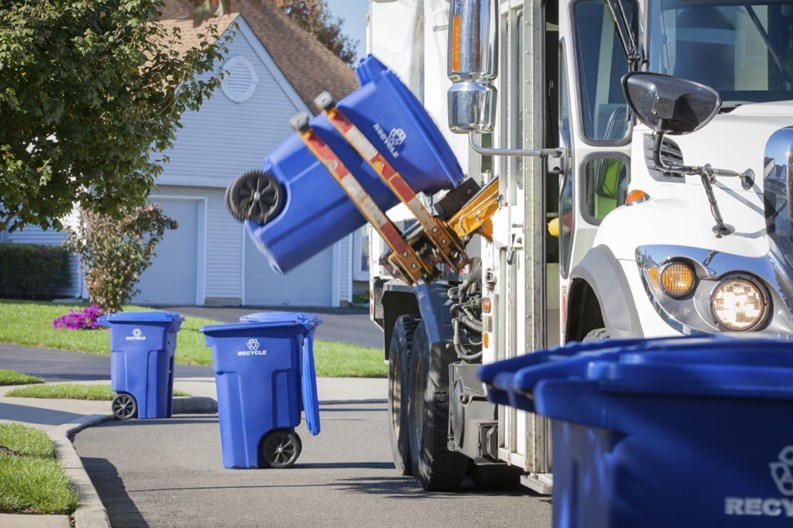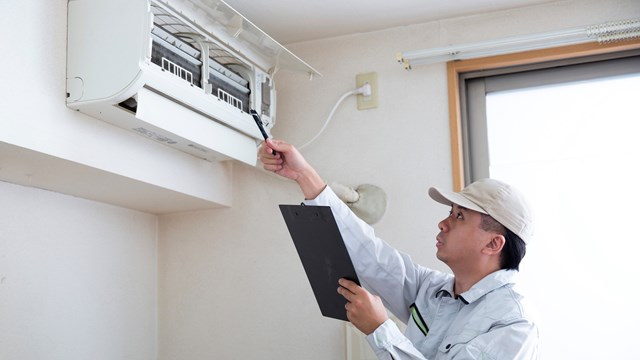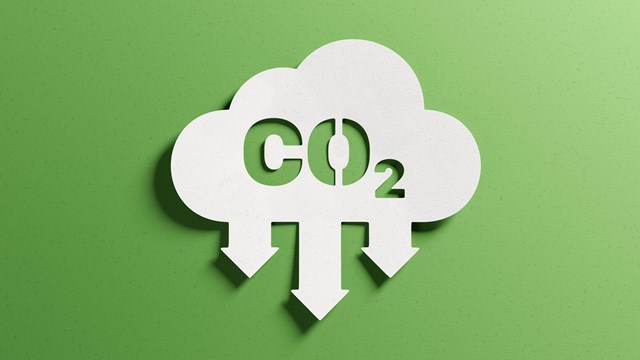Recycling has become an entrenched part of solid waste management for communities everywhere, and condo managers report that, in general, unit owners have been steadily moving into compliance.
Often though, it’s difficult to find a tangible incentive to recycle, and many consumers resist participating when they believe it just means extra work. Attorney Richard Brooks, from the Braintree, Massachusetts-based law firm of Marcus, Errico, Emmer & Brooks, P.C., admits, “I couldn’t see the point… to spending time separating trash—but something ‘clicked’ about four years ago, and now I see how recycling can be a plus” in cutting trash volume and the cost of its removal but extracting the recycleables. “Now, we diligently put everything in the proper bins. In my town, you have to pay extra for pickup of a second container of trash.”
Brooks has negotiated on behalf of numerous condo associations to get their city or town departments of public works to pick up trash at condo properties—and treat unit owners like any other taxpayer. But it may mean re-educating residents, if their former private trash hauler had a different way of collecting—or not—recyclable materials. “For condo managers,” he continues, “they understand that they have to impose the town’s recycling regulations, when their municipality agrees to pick up the association’s trash and recycling is part of the deal.”
Because regulations vary considerably throughout New England, the incentives to participate in recycling programs vary as well. For many associations, the cost of trash removal is lower if recycling programs are successful, but compliance with recycling regulations really depends on the cooperation of everyone involved.
In the majority of New England states, counties and towns, regulations are in place that simply ban certain materials from the trash stream, and trash haulers and their customers are forced to find ways to recycle them.
State Laws Vary
Rhode Island was the first state in the nation to pass mandatory recycling legislation back in 1986, and it can compare with many respected programs across the country. Under the state’s “Maximum Recycling” program, municipalities and single-family residences are required by state regulations to recycle the standard list that includes aluminum and tin cans; foil and pie plates; scrap metal; empty aerosol and paint cans; white goods; glass containers; drink cartons and boxes; HDPE and PET; old mail; magazines and catalogs; phone and paper books; writing paper; corrugated cardboard; paperboard; newspapers; textiles; and leaf and yard waste.
Commercial facilities are required to recycle an even broader list. Non-municipal residences (apartment complexes) are required to recycle aluminum, glass food and beverage containers, leaves and yard waste, newspaper, HDPE and PET, steel and tin-coated steel cans, telephone directories and white goods.
Attorney Frank Lombardi works from the Rhode Island office of the Dedham, Massachusetts-based law firm of Goodman, Shapiro & Lombardi, LLC. He has worked for years with associations in that state to get municipal trash collection to extend service to condo communities, he says, “because they’re paying the same taxes. But if we succeed [and get free pick-up] and the condo community stops using a private hauler, they must conform to the recycling regulations of that city or town.”
In exchange for free trash pick-up, associations must get unit owners and residents to sort materials properly—as an educational process. “The major problems that I see,” states Lombardi, “are with placement of bins… figuring out where to locate them” so that they will be easy to use and not make it more of a chore to “taking out the trash.”
Most importantly, he notes, the consequences of non-compliance must ultimately be borne by residents. “Let’s say the city DPW picks up at your condo community, but you must separate the different recycled materials. If a unit owner doesn’t comply, they should be cited by the association, or else the board can get fined. A board can demand that residents abide by local laws, since most condo docs include a ‘compliance to municipal requirements’ clause. Even with private haulers [who must recycle]… They can charge the association a ‘fine’ or higher fees if materials are not separated. With the municipal requirements clause, the board can pass on the fine to the resident.”
And it may not be that difficult to identify a miscreant. “One time,” Lombardi recalls, “we had a condo resident who refused to separate out his recyclables and was stuffing cardboard packaging into the trash bag rather than the proper bin.” It was becoming a pick-up problem with a potential fine, and board members suspected who the perpetrator might be. Management approached him about it and he tried to blame the directors for picking on him because of his ethnic background, but the manager had pulled the packaging out of the trash and was able to point out the resident’s name and address clearly displayed on a mailing label.
Lombardi believes that waste disposal for average citizens should be easy to do and not cost anything. “When the regulations get too complicated and [disposal] fees too high, that’s when you see trash by the roadside. It means the rules are too stiff and puts pressure on people who cannot afford it… they’ve just given up.”
‘Green’ Savings
In 1990, the Massachusetts Department of Environmental Protection (MassDEP) introduced its first bans on landfilling and combustion of easy-to-recycle and toxic materials, with waste bans of additional materials in the years since. David J. Levy is president of Sterling Services of Holliston, Massachusetts, which manages some high-density properties in urban/suburban areas around Greater Boston. He experiences extra challenges in educating residents about recycling programs. For instance, he reports, “In Framingham, we have city trash pickup and it saves a lot of money for associations, but the required recycling must be included. Many residents and tenants are recent immigrants, and we need to have bilingual staff and instructional flyers. We use a web portal that offers a ‘preferred language’ to inform residents. For people to get on board, we need to focus attention on the special rules around recycling and help people learn the ropes.”
One system that has seen success in several cities is the “pay as you throw” program, where citizens pay for special trash bags that only hold non-recyclable waste, and material in the curbside recycle bins are picked up free. Levy reports, “This needs monitoring as well, because the opposite problem can result. In Ashland [which has the pay-for-trash bags] we’ve seen where people are caught trying to sneak trash into the recycle bins.”
In high-rise buildings, the traditional trash chutes can complicate a recycling program. “In the multi-story buildings that we manage, if they have trash chutes,” says Levy, “we place the recycle bins where people are most likely to use them, by the elevators at the basement parking areas.”
Bob McBride, CEO at The Dartmouth Group, a management firm in Boston, contends, “We’re advancing with recycling. … People are getting more used to it and now expect to recycle. The trash haulers have made it easier with the trend toward single stream recycling” which doesn’t require separation of plastic, glass and paper in curbside bins. “This has made it so much easier for condo managers to achieve compliance. In general, the condo communities handle the recycling programs like any other homeowners, with the bins added to trash receptacles. Townhouse condos often have curbside pickup which now include recycle bins, while multi-unit buildings usually have an area for a dumpster where larger-size recycling bins are added on. Or bigger buildings may have a trash room where recycling bins have been introduced. We find that residents generally want to participate and think it’s a good thing.”
The other New England states have some unique regulations. In Connecticut, the state imposes “mandatory recycling regulations” and various state statutes, basically designating 11 items that must be recycled: glass food containers, metal food containers, old newspaper, corrugated cardboard, scrap metal, leaves, waste oil, lead acid batteries, high-grade white office paper, and grass clippings, and NiCad rechargeable batteries.
Maine's recycling requirements apply only to state government, the state university system and businesses with 15 or more employees at one location. Each municipality develops its own recycling program and may adopt—through ordinance—specific material requirements.
New Hampshire has no statewide mandatory recycling laws but 117 municipalities out of the 234 have voluntarily adopted some type of mandatory recycling ordinance.
The “Green” Mountain state of Vermont surprisingly has no statewide recycling law, but encourages the solid waste districts to implement mandatory programs, and recycled materials vary by district.
As recycling has taken hold, critics are pointing out flaws in the most basic tenets behind the recycling movement, such as the perceived lack of landfill space. Plus, the initial benefit of cost savings may be growing tenuous. Levy points out, “It’s true that cost savings for trash removal were bigger years ago, when recycled materials were more coveted, and often included a profit margin.”
The cost of processing recycled materials often cancels any potential revenue gain. For condo communities, however, Levy says, “In some towns, we have lowered the cost of trash removal by adopting the free recycling program. That savings for the association’s budget must be communicated to all unit owners, who will participate more completely if they can see that benefit” and help control their maintenance fees.
Marie N. Auger is a freelance writer and a frequent contributor to New England Condominium.







Leave a Comment